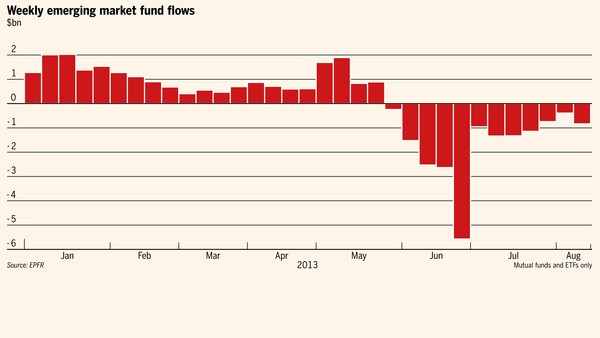Deciding When to Sell a Mutual Fund (Free Money Finance)
Post on: 16 Март, 2015 No Comment

Categories
August 26, 2010
Deciding When to Sell a Mutual Fund
The following is an excerpt from Personal Investing: The Missing Manual .
If a fund is performing badly, investors are prone to making one of two mistakes. Some sell in a panic, while others hold onto the fund hoping it will turn things around. Most funds give a few warning signs before they crash. If you learn to spot those warnings, you can review a fund that looks like it might be headed for trouble, make an educated decision about selling, and possibly sell before the fund hits the skids. Here are fund red flags to watch for:
- Departing manager. If you own an actively managed fund, the fund manager delivers the fund performance. If the longtime manager is leaving, but co-managers or the management team is staying in place, dont sell just yet. If brand-new managers are coming in, check out their track record to see if their experience is on par with the old managers reputation. If it isnt, consider replacing the fund.
- Proposed fund merger. Fund companies get rid of their dogs by merging those funds into other funds. If you learn that your fund is merging with another, evaluate the new fund as you would a brand-new fund purchase to make sure its right for you.
- Changing investment strategy. Review your funds investment objectives and the securities in their portfolios. If you notice that a fund has started to invest differently by, for example, buying large-cap stocks instead of mid-cap stocks, you may want to replace the fund with one that fits your financial plan.
- Big increase in assets. Really successful funds rake in oodles of new money. Thats not necessarily good for future performance, because the fund managers may have a hard time investing all that cash. Small and mid-cap stock funds are especially vulnerable, because its hard to find enough suitable investments to deliver the same kinds of returns theyve produced in the past. If the fund management closes the fund to new investors, dont sell. Theyre watching out for your best interests by keeping the fund at a manageable size. If the fund continues to accept new investments, watch the funds performance closely, and get out if it starts to falter.
- Bad long-term performance. Dont sell a fund because of poor performance for a short period like 3, 6, or 12 months. The fund may do better in up markets or down markets, or may have gotten temporarily derailed. But if performance falls behind the comparable market index and the competition year after year, look for a replacement.
- New or higher fees. Higher fees take money away from your investment returns, so theyre never good. But, if the amounts small (less than 0.1%) and the fund is doing well, its usually worth staying put. If a fund makes large increases in fees or increases its fees regularly, start looking for a new one.
- Turmoil. If a fund family is bought or sold or a star manager leaves (taking staff with him), that chaos can distract fund managers from their jobs and drag returns down.
- Rising turnover rate. If the turnover rate increases and stays at higher levels, your expenses and tax bill are likely to climb as well.
Tip: Never trade in a fund based on a hot tip you heard around the water cooler at work, at the gym, or from your landscaper. Dont automatically replace funds just because your broker gives you a suggestion. Always do your homework first.
Even if red flags arent waving, you may decide to sell for other reasons:
- You need the money. Selling a fund because you need the money for something is perfectly OK. Thats why you invest in the first place.
- Balance your portfolio. When you review your portfolio and find that your asset allocation is slightly out of balance, you should sell fund shares in the areas that are over-allocated and buy more in the areas that are under-allocated.
- Changing goals. If your life changes, so will your goals. If your child earns a big honking scholarship, you can look at reinvesting the college savings youve amassed into something else.
- Sleep. If youre losing sleep over your investments performance, its time to make some changes. Ratchet down the risk until you sleep comfortably at night.
- Taxes. If you sell a fund that generates capital gains, you may decide to sell a fund with losses to offset the gains.














